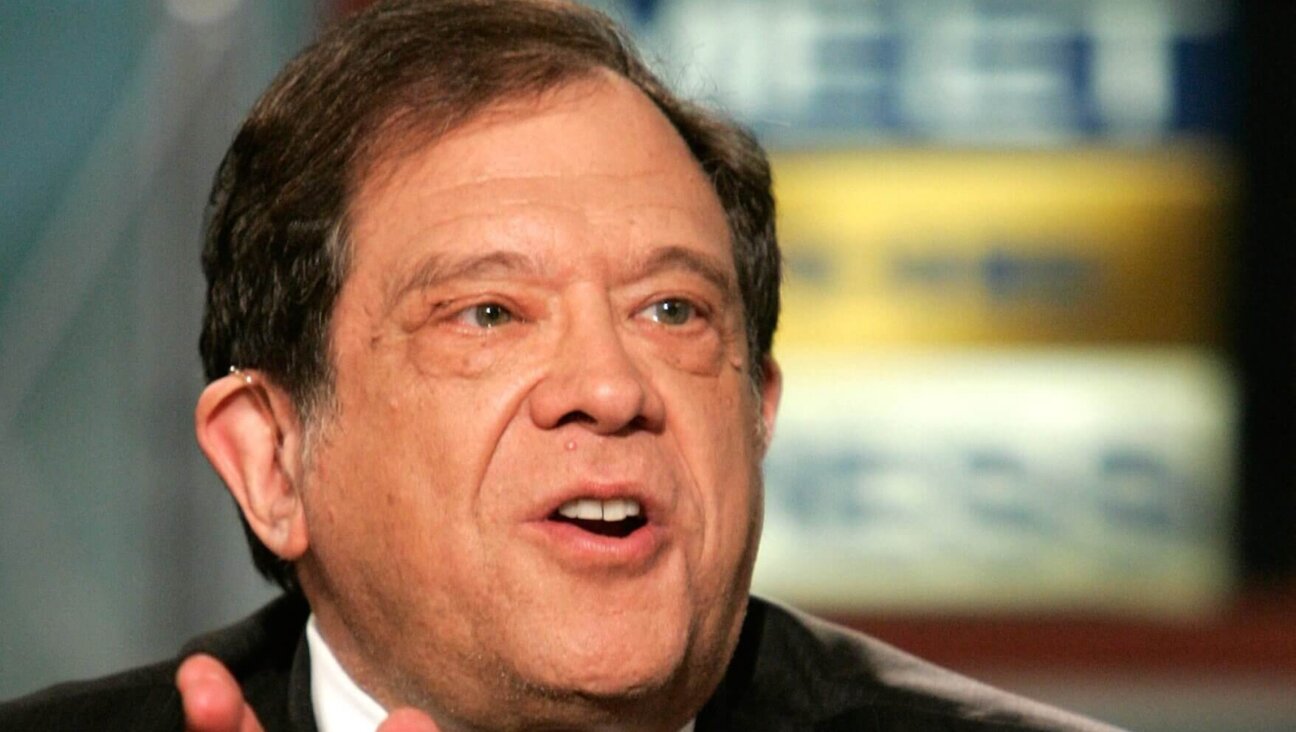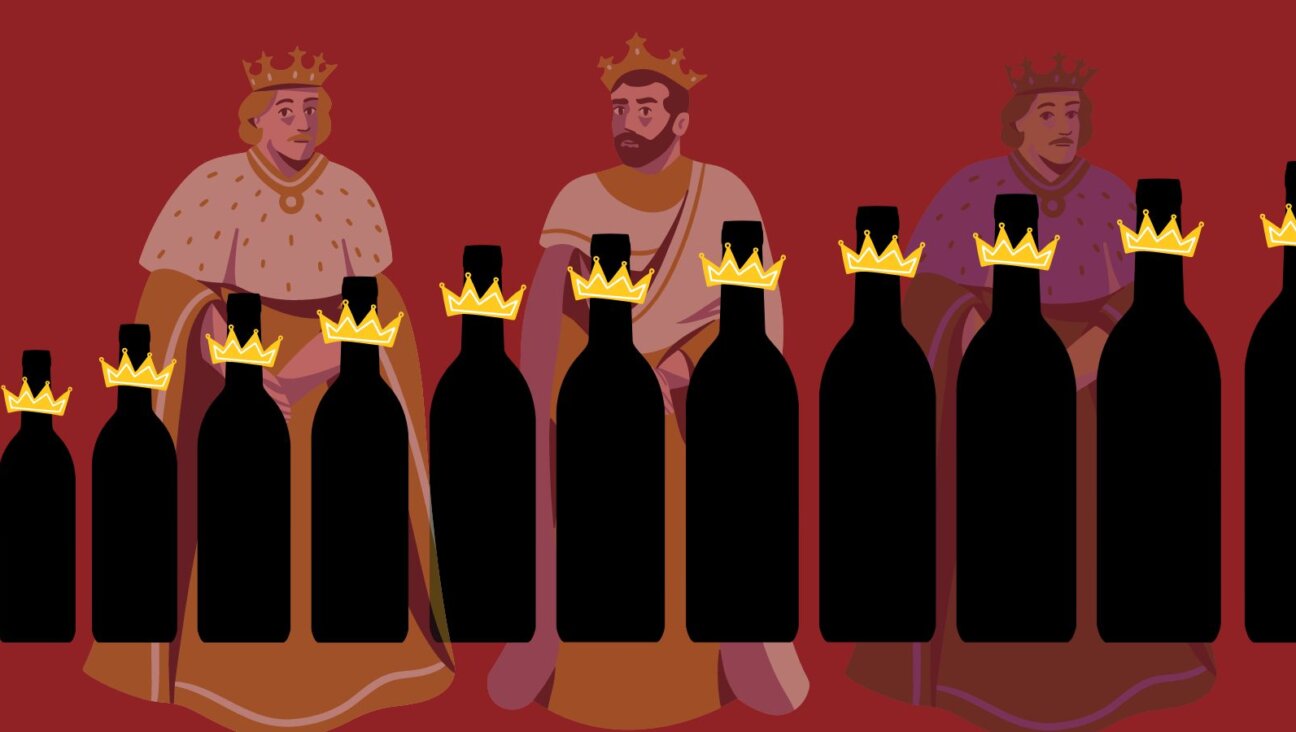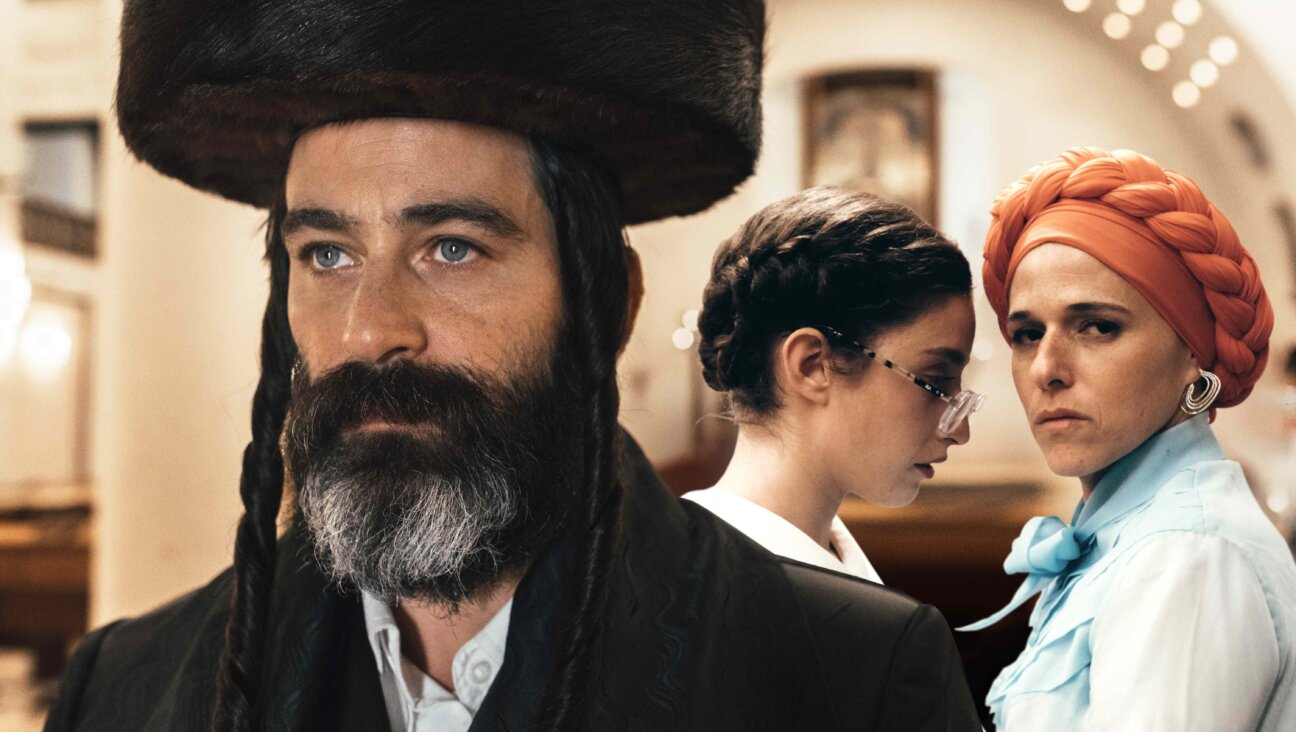How Jewish themes inspired Ennio Morricone

Ennio Morricone Image by Getty Images
The Oscar-winning Italian composer Ennio Morricone, who died on July 6 at age 91, is cherished by film fans for his scores to Spaghetti Westerns directed by Sergio Leone as well as Quentin Tarantino’s “The Hateful Eight” (2015), for which he received an Academy Award.
Yet as Morricone sometimes pointed out to journalists, his artistry was considerably more wide-ranging than a few genres, and was often inspired by Jewish themes.
A long-time friendship with the Jewish artist Eva Fischer (1920–2015), a survivor of the Vallegrande concentration camp in Korčula, Croatia, resulted in the 1992 publication of a deluxe format CD. Entitled “To Eva Fischer, Painter,” it contained recordings of twelve short compositions by Morricone inspired by Fischer’s paintings, as well as reproductions of her art reflecting Morricone’s music.
Both Fischer and Morricone preferred restrained and muted tones when expressing tragic themes, especially the Holocaust. Moviegoers and critics admired Morricone’s vivacious scores to films about Jewish gangsters, from Barry Levinson’s “Bugsy” (1991) about the mobster Bugsy Siegel, to Leone’s “Once Upon a Time in America” (1984) with fictional nogoodniks such as David ‘Noodles’ Aaronson and Philip ‘Cockeye’ Stein.
Yet “Cockeye’s song,” named after the last-mentioned thug, is unexpectedly haunting as played on the pan flute by Gheorghe Zamfir. Morricone’s sheer variety of musical vocabulary made him a quasi-encyclopedic creator. He exploited the pan pipe’s raw and resonant character, akin to a shofar. Wordless sung passages on the soundtrack of “Once Upon a Time in America” evoke a modernist 1960s aural idiom that Morricone knew well, having studied trumpet performance and choral conducting at conservatory.
His solid musicianship was widely admired. The historian Richard Pells observes that in soundtracks for Leone’s films, Morricone avoided imitating American-style Western music in the manner of Aaron Copland. Instead, Morricone opted for budget-conscious minimalism, reflecting then-trendy “concrete music” featuring anvils, bells, whistles, whips, gunshots, and animal noises.
Conversely, as the musicologist Nina Perlove suggests, Copland himself may have been influenced by Morricone’s innovations. In 1971 Copland, the dean of American Jewish composers, composed a “Duo for Flute and Piano”, that possibly echoes some of Morricone’s Native American whooping sounds heard in the Leone film “The Good, the Bad and the Ugly.”
The more nuanced were the stories onscreen, the more Morricone’s characteristic musical restraint and solemnity were illuminating. Yiddishkeit was a recurrent inspiration. A devout Catholic, Morricone would routinely participate in events such as the European Day of Jewish Culture, coordinated by the European Association for the Preservation and Promotion of Jewish Culture (AEPJ); the European Council of Jewish Communities; B’nai B’rith Europe; and the Network of Jewish Quarters in Spain.
In 2002, Morricone wrote the music for “Perlasca: The Courage of a Just Man,” about Giorgio Perlasca, an Italian businessman working in Hungary. During the winter of 1944, Perlasca took refuge in the Spanish Embassy and posed as Spanish consul-general to Hungary, saving over 5000 Jews from deportation to Nazi extermination camps.
Morricone’s graceful folk-like tunes complement the Perlasca narrative, as they did in “Memories of Anne Frank (2009)” a TV film that contains one of Morricone’s purest, most yearningly exalted melodies.
Based on the life of Hannah Goslar, a friend of Anne Frank’s, it was another example of how the effect of the Holocaust upon children became an ongoing subject of moral reflection for Morricone. In 2014, he told an interviewer from “la Repubblica” that over 70 years earlier, he and his family had known “nothing of the Jews who were arrested, arrested, deported. And this happened just a few steps from [our] home. Even today, I feel excruciating pain for those unknown stories, the invisible dramas of which we had been largely unaware…Today, I think that not knowing is also a form of responsibility.”
So in 1993 he wrote the music for “Jonah Who Lived in the Whale” (1993), based upon an autobiographical novel by the Dutch Jewish physicist and concentration camp survivor Jona Oberski. Morricone’s music includes a children’s’ song in Hebrew, “Gam Gam,” set to words from the 23rd Psalm, “Yea, though I walk through the valley of the shadow of death, I will fear no evil: for thou art with me.” In 2011, when the first kindergarten of the Florence, Italy Jewish Community opened, Hebrew words from Morricone’s endearing theme were incorporated in the wall decoration.
Still another onscreen examination of the effect of the war years upon young Jews was “Fateless” (2005). For this adaptation of the Hungarian Jewish writer Imre Kertész’s semi-fictionalized account of deportation to Auschwitz, Morricone created gleaming meditative resonances.
He was also fascinated by the fate of adults during Italy’s Fascist years, and wrote poignant melodies for “The Golden Glasses,” (1987)], based upon a novel by the Italian Jewish author Giorgio Bassani. His music of tender reticence expresses empathy felt by Davide Lattes, a Jewish university student, for a gay doctor who is persecuted by Italian Fascists in 1930s Ferrara.
Morricone’s imagination was nurtured early on by avant-garde sound experiments. In 1964, he was invited to write music for the John Huston film, “The Bible.” He sent his wife, Maria Travia, to record a rabbi at the Great Synagogue of Rome, speaking and translating biblical Hebrew. Morricone set the words to a piece on the Tower of Babel in a modernist idiom, but a publishing conflict led the producers to replace him as soundtrack composer. Morricone’s “Tower of Babel” was finally heard in the background of a screen drama about marital discord, “Garden of Delights” (1967),
Comparably biblical in origin was Morricone’s music for “Moses the Lawgiver” (1973-74)](https://www.amazon.com/Moses-Lawgiver-Thomas-KENEALLY/dp/0002155214/?tag=thefor03-20) a TV miniseries starring Burt Lancaster as the eponymous hero. Yet in this instance, despite using what he termed “Hebrew modalities, which I know well,” Morricone was ultimately displeased with the way his compositions were presented in the drama, making an atypically lush, schmaltzy impression.
Another disappointment in a lengthy career of triumphs was when the American Jewish director Stanley Kubrick invited him to write the score for “A Clockwork Orange” (1971). Morricone accepted, but Sergio Leone, jealous, falsely informed Kubrick that the composer was still engaged on a film project with him.
This was a matter of no small regret to Morricone in later years. Kubrick was ever-alert to new sounds and had even lifted those by the [Hungarian Jewish composer György Ligeti] https://www.amazon.com/Metamorphosis-Music-Compositions-Gy%C3%B6rgy-Ligeti/dp/0199381992/?tag=thefor03-20) without authorization for “2001: a Space Odyssey.” Morricone’s always-diverse research in sound would have ideally complemented Kubrick’s questing screen imagery.
Morricone eventually coped with such setbacks with the pensive aplomb to be expected from an ardent amateur chess player, who traveled to remote cities to participate in exhibition matches. Once he even faced the Russian Jewish chess champion Garry Kasparov who was playing multiple amateurs simultaneously.
One of Morricone’s last public actions was to accept honorary membership in the Eva Fischer Foundation, established in his friend’s honor. Morricone told Fischer’s son: “Acting in Eva’s memory to spread cultural awareness would be essential for anyone.”
No less essential were Morricone’s own unassuming, yet munificent musical contributions to modern world cinema, profoundly informed by his awareness of Jewish history and tradition.

I hope you appreciated this article. Before you go, I’d like to ask you to please support the Forward’s award-winning journalism this Passover.
In this age of misinformation, our work is needed like never before. We report on the news that matters most to American Jews, driven by truth, not ideology.
At a time when newsrooms are closing or cutting back, the Forward has removed its paywall. That means for the first time in our 126-year history, Forward journalism is free to everyone, everywhere. With an ongoing war, rising antisemitism, and a flood of disinformation that may affect the upcoming election, we believe that free and open access to Jewish journalism is imperative.
Readers like you make it all possible. Right now, we’re in the middle of our Passover Pledge Drive and we still need 300 people to step up and make a gift to sustain our trustworthy, independent journalism.
Make a gift of any size and become a Forward member today. You’ll support our mission to tell the American Jewish story fully and fairly.
— Rachel Fishman Feddersen, Publisher and CEO
Join our mission to tell the Jewish story fully and fairly.
Only 300 more gifts needed by April 30

























